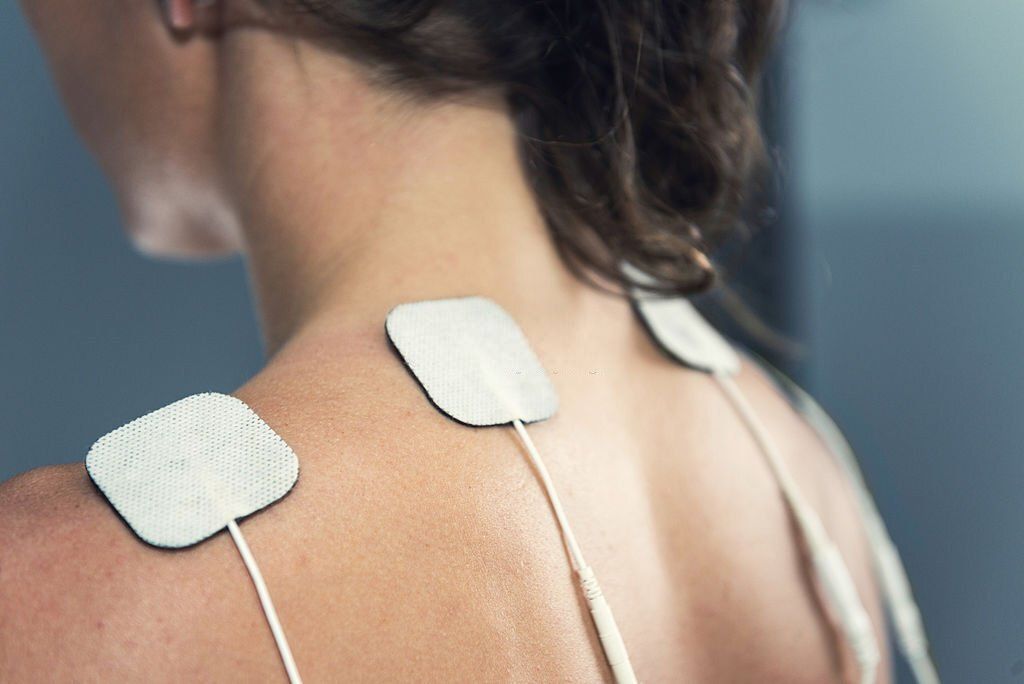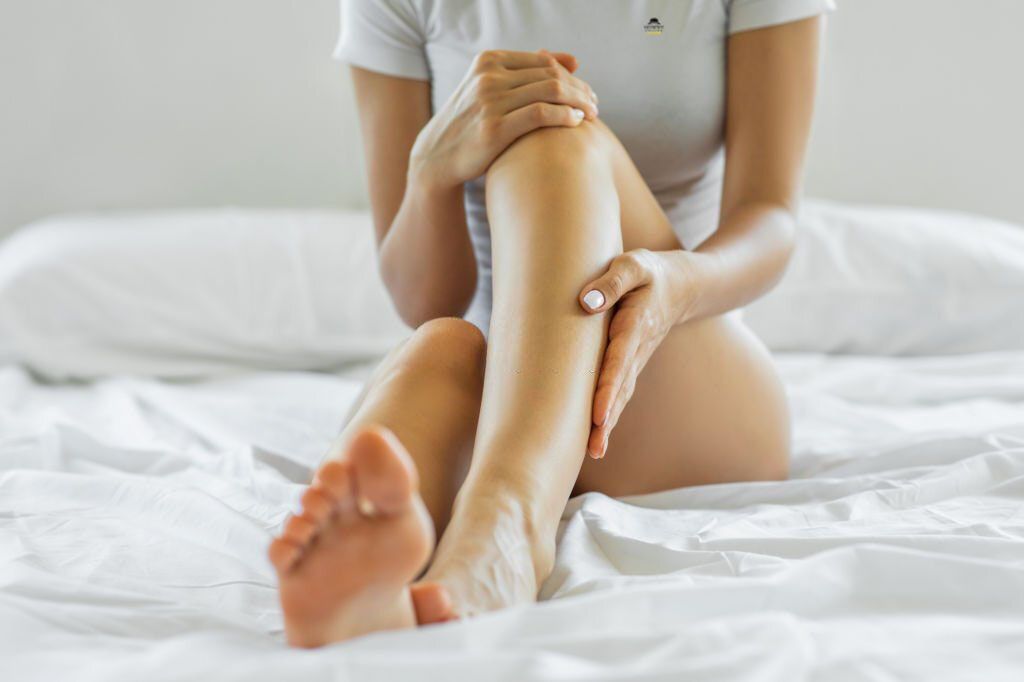This article is reviewed, corrected, and approved by: Dr. Joshua Collins M.D. | MRCP। FRCP
Rippling Muscle Disease (RMD) is an uncommon genetic condition that results in distinctive muscle contractions and weakness. It is caused by mutations in the CAV3 gene.
Stimulating affected muscles can cause a rippling effect on the skin's surface. Other symptoms include fatigue, sensitivity to mechanical stimulation, cramps, and stiffness.
What is Rippling Muscle Disease?
Rippling Muscle Disease (RMD), which is also referred to as Rippling Muscle Syndrome (RMS), is a relatively uncommon genetic neuromuscular disorder that is typically recognized by atypical muscle contractions and muscle weakness.
A mutation in the CAV3 gene causes the disease, which is crucial for muscle function. This condition is typically caused by a genetic mutation that affects the normal functioning of muscle fibers, leading to the aforementioned symptoms.
While the precise mechanisms that underlie RMD remain incompletely understood, ongoing research is gradually shedding light on this condition and improving our understanding of how it arises and how it can be treated.
Symptoms Of Rippling Muscle Disease

The symptoms of Rippling Muscles Disease (RMD), also known as Rippling Muscle Syndrome (RMS), can vary from person to person. However, there are common manifestations associated with this condition. The primary symptoms of RMD include:
Muscle Rippling
One of the recognizable features of RMD is the presence of muscle rippling or wave-like muscle contractions. When the affected muscles are stimulated or mechanically activated, such as through tapping or pressure.
They cause a visible and tangible rippling sensation in the muscle fibers. This ripple disease can be observed on the surface of the skin and may appear as a wave moving across the muscle.
Muscle Weakness
Individuals with RMD often experience muscle weakness. It may be difficult for the affected or rippled muscles to perform any physical activity without becoming easily fatigued, resulting in limitations in movement and muscle strength. The extent of muscle weakness can vary among individuals and may affect different muscle groups in the body.
Muscle Fatigue
Alongside muscle weakness, individuals with RMD may experience muscle fatigue. The muscles may tire quickly, even with minimal exertion, making it challenging to engage in activities that require sustained muscle use.
Sensitivity to Mechanical Stimulation
People with RMD may exhibit heightened sensitivity to pressure or mechanical stimulation applied to their muscles. Touching or tapping the affected muscles can trigger the rippling phenomenon and may cause discomfort or even pain.
Associated Symptoms
Some individuals with RMD may also experience additional symptoms, although these can vary in severity and presentation. These associated symptoms can include muscle cramps, muscle stiffness, muscle pain, and difficulty relaxing the muscles after contraction.
Different people may have different levels of symptoms. Some may have minor symptoms that don't affect their daily activities much, while others may experience more severe symptoms that can make it harder to mobility and hamper their daily task
Causes of Rippling Muscle Disease (RMD)
People with RMD have muscle rippling when muscles are stimulated or mechanically activated. The ripples disease is visible and can affect many muscle groups.
The primary cause of Rippling Muscle Disease (RMD), also known as Rippling Muscle Syndrome (RMS), is genetic mutations in the CAV3 gene. Here are the detailed causes of RMD:
Genetic Mutations
The main cause of RMD is mutations in the CAV3 gene. RMD disrupts the body's ability to control its calcium levels. Mutations in this gene can lead to abnormal calcium release in muscle cells, resulting in the characteristic muscle rippling and associated symptoms of RMD.
Inheritance Patterns
The specific genetic mutation responsible for RMD can lead to different inheritance patterns. This condition can be passed down through families in two different ways: either through a dominant gene or a recessive gene.
Autosomal Dominant
In autosomal dominant RMD, a person inherits a single copy of the mutated CAV3 gene from an affected parent. Genetic mutations have a 50% chance of passing on to children of affected individuals.
Autosomal Recessive
If both parents have a certain gene mutation, their children have a 1 in 4 chance of developing a condition called autosomal recessive RMD. They need to inherit the mutated gene from both parents to have the condition.
Sporadic Cases
In rare instances, RMD can occur without a known family history or genetic mutation. This condition is seen occasionally and might include other things like genes or surroundings that cause the condition to happen.
Treatment for Rippling Muscle Disease

Currently, there is no cure for Rippling Muscles Disease (RMD), also known as Rippling. This is a genetic condition known as Muscle Syndrome (RMS). Symptoms of RMD can, however, be managed and improved with treatment options. These treatment approaches for RMD are as follows:
Medications
- Muscle Relaxants: To alleviate muscle rippling and stiffness, benzodiazepines or baclofen may be prescribed.
- Pain Management: To alleviate any muscle pain or discomfort, one can take analgesics or nonsteroidal anti-inflammatory drugs (NSAIDs).
Physical Therapy
- Targeted Exercises: A physical therapist can design exercise programs focused on improving muscle strength, flexibility, and coordination to help manage muscle weakness and fatigue.
- Stretching Techniques: The benefits of stretching exercises include reducing muscle stiffness and increasing range of motion.
- Posture and Body Mechanics: Correcting posture and teaching proper body mechanics can assist in optimizing muscle function and minimizing symptoms.
Lifestyle or Habit Changing
- Avoiding Triggers: Identifying and avoiding triggers that may exacerbate muscle rippling, such as certain foods or activities, can be helpful.
- Stress Management: It may be helpful to manage symptoms by using relaxation exercises or mindfulness techniques to reduce stress.
- Adequate Rest and Sleep: Ensuring sufficient rest and quality sleep can help manage muscle fatigue and overall well-being.
Assistive Devices
- Mobility Aids: Depending on the severity of muscle weakness and mobility limitations, assistive devices like canes, walkers, or wheelchairs may be recommended to enhance mobility and independence.
Supportive Care
- Counseling and Support Groups: Getting emotional and psychological support through counseling or joining support groups can help individuals and their families manage the difficulties that come with RMD.
- Education and Resources: Accessing educational materials, reliable sources of information, and specialized resources can enhance understanding and facilitate self-management of the condition.
Shocking Revelation of Rippling Muscle Disease On Live TV!
Final Thoughts
If you suspect you or someone you know may have RMD or are experiencing any concerning muscle-related symptoms, it is advisable to consult an expert neuromuscular disorders specialist or a geneticist.
For a proper evaluation, accurate diagnosis and appropriate management are mandatory to prevent future complications. Rippling muscle disease can be effectively managed and improved with care and proper management.
Frequently Asked Questions
Q: What is white muscle disease, and is it related to rippling muscle disease?
Ans: Nutritional myodegeneration or white muscle disease are both different conditions. In general, WMD is caused by selenium and vitamin E deficiency, and RMD is caused by genetic disorders.
Q: Is rippling muscle disease fatal?
Ans: There no such study have found yet; more information is needed to determine if "RMD" is fatal.
Q: Green muscle disease vs. rippling muscle disease
Ans: GDM is a degenerative muscle disease that only affects animals, not humans. However, RMD is a genetic disorder commonly observed in humans.


